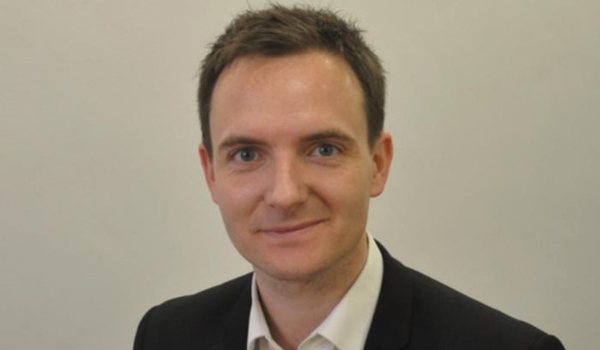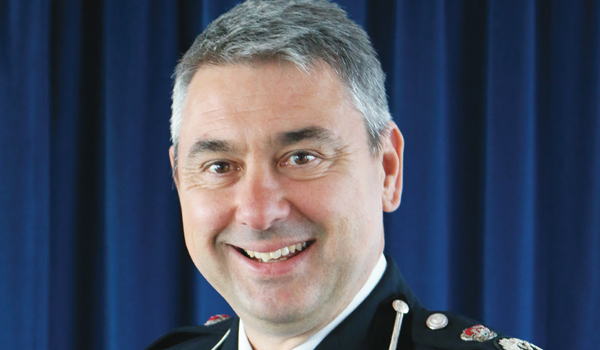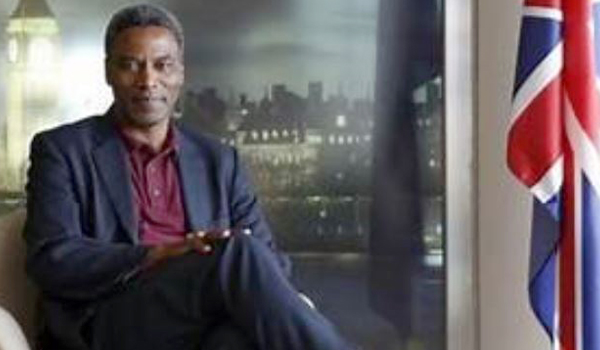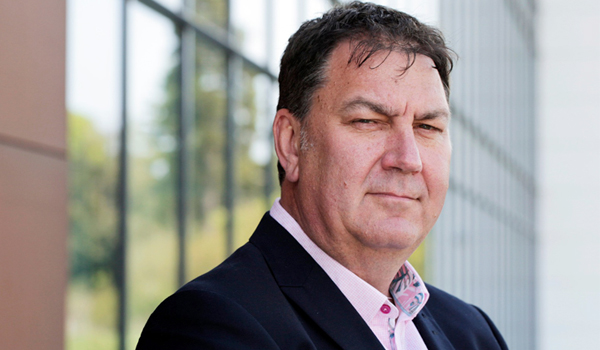The Met must reinvent itself – or die
In his latest blog, Police Foundation director Rick Muir looks at what needs to change in the wake of the damning review by Baroness Louise Casey into the culture and standards of the Metropolitan Police Service.
The Baroness Casey Review has found that the Metropolitan Police Service is ‘institutionally racist, misogynistic and homophobic’. In his response, the Commissioner Sir Mark Rowley has accepted the substance of Baroness Casey’s findings, although not the term ‘institutional’.
Whether the police accept the label does not negate its truth. An independent and highly respected public servant has been given full access to the Met’s data and people and has come to this judgement. As with the judgment of Sir William MacPherson 20 years ago, it is the definitive judgment. The Met must accept it and get on with the urgent work of getting themselves into a place where no reasonable person could come to such a conclusion.
Baroness Casey’s findings are damning. She finds a police institution that is decreasingly trusted and no longer commands the confidence of vast swathes of the population it serves. She concludes, rightly, that this cannot properly be described as ‘policing by consent’. She finds that the parts of the Met which interact with the public most – its Basic Command Units (BCUs) – are the most neglected in terms of resources and effective management. They are run ragged and it shows. By contrast the Met’s specialist units are often well resourced, but in two major cases (firearms and diplomatic protection) have toxic internal cultures, riddled with racism and sexism.
She finds a misconduct system that it is utterly broken and a vetting system that is for all intents and purposes dysfunctional. There are too many bad cops in the Met and there is no guarantee that more are not being recruited. Supervision is incredibly weak, with too few sergeants. Frontline supervisors are not given any real training in how to be effective leaders.
The way the Met deals with accusations of domestic abuse by its officers basically amounts to corruption. Violence against women and girls is not prioritised in the same way as other forms of violent crime, especially knife crime. One in ten female officers have been sexually harassed or assaulted by their colleagues. On almost any measure black people continue to be disproportionately subject to the use of police power and examples of racism against non white officers are rife. Baroness Casey came across overt homophobia and many examples of homophobic bullying. Senior officers were found, repeatedly and systematically, not to take these things seriously.
Corporately, the organisation’s approach to these problems is marked by an ingrained institutional defensiveness. Where it must act, it tends to institute one-off initiatives to show external bodies that it is acting, but these often fizzle out or are drowned out by other competing initiatives.
Make no mistake, this is an existential moment for the Met. There are already calls for the force to be broken up, with its national functions being hived off to the National Crime Agency and even for more locally rooted sub-London level forces to be established. As Baroness Casey herself concludes there is a case for re-founding the Met.
She refers rightly to the transformation of the old RUC into the Police Service of Northern Ireland, a necessary and successful transition from one form of policing to another.
My own view is that the Met is now in the last chance saloon. The new Commissioner accepts the need for change and deserves the time to implement his Turnaround Plan. But if the Met cannot demonstrate within the next two to three years that is making substantive progress towards becoming a different kind of police institution, then radical organisational reform should be undertaken.
It is not impossible for a large organisation to change or be effectively led. But it is also true that many of the problems Baroness Casey outlines (the privileging of specialist units, the loss of local accountability, the underinvestment in basic local policing) might require more radical structural solutions.
So, what should be done?
First, the Met needs to quickly get rid of bad police officers. It is simply intolerable that the Commissioner has identified hundreds of people who he thinks should not be police officers but he cannot remove them. Of course, misconduct processes need to be fair, but the current process takes far too long. The Government should put aside the existing police regulations and re-write them from scratch. The Commissioner, and all chief constables, should be given the power to dismiss officers found guilty of gross misconduct.
Second, the Met needs to stop recruiting bad police officers. There is a lot of focus on vetting and of course that needs to be improved. But the reality is that the vetting system was set up to root out those involved in organised crime not racists, misogynists or homophobes. The whole recruitment process needs to be reformed to find ways of getting at these fundamental questions of character. Face-to-face interviews should be required before anyone is recruited into policing. If that means the process is slower, so be it. It is more important to get these decisions right. The headlong rush to recruit under the pressure of government targets has been deeply unhelpful in this context.
Third, and most importantly of all, the Met needs culture change. Currently the so-called ‘bad apples’ have been allowed to fester because of a wider culture of silence and complicity. As Baroness Casey demonstrates, all the personal incentives in policing are to keep quiet when one sees things one doesn’t approve of. That culture needs to be flipped on its head. The default assumption must be that bad, unprofessional, unethical and criminal behaviour is called out wherever it exists.
How do we get there? Leadership is key. Senior leaders need to set an example of the highest ethical conduct and they must have the backs of those who want to bring about change. Baroness Casey finds that too often that is not the case. Why would someone blow the whistle on bad behaviour if senior managers do not back them up?
Frontline supervisors are just as important. In its last Leadership Review the College of Policing concluded that the sergeant rank is a “development free zone”. Baroness Casey finds that sergeants get little or no training in how to be effective leaders. The best way to change the culture is for these frontline leaders to call out bad behaviour, set the highest expectations and ensure that the Code of Ethics runs through day-to-day decision-making. That requires proper leadership development programmes at all levels.
Fourth, the Met needs to embody once again the principles of policing by consent on which it was founded. The Commissioner’s commitment to strengthening neighbourhood policing is very welcome. Good community policing, built around visibility, engagement and preventative problem solving, is a critical building block for restoring trust and confidence. But as Baroness Casey points out this work must go further: the whole BCU level of the Met requires substantive focus and investment, from response to public protection. And its leadership must have the autonomy to be responsible and accountable locally for the policing undertaken in their patch.
There should be less use of blunt street enforcement. The Met has long been addicted to stop and search as way of demonstrating that something is being done about violent crime, more so than other large urban forces. This is despite all the academic evidence pointing to the fact that using the power in high volumes is almost certainly counter-productive. They should use it less and use it fairly and Casey’s proposal for a new charter is very welcome.
Finally, the leadership of the Met must welcome public engagement and challenge. For too long there has been an institutional defensiveness about the way the Met has responded to external scrutiny. This needs to end. Policing is inherently and inevitably controversial. The police are the holders of the state’s repressive power. They should be challenged, robustly, in their exercise of that power. Police leaders should embrace such challenge. The Commissioner’s response to the report, in accepting its substantive findings, is welcome in that context.
Most of these changes are contained in Baroness Casey’s recommendations. Very many are also set out in the Commissioner’s Turnaround Plan. The Commissioner has been open and honest about the need for change and he deserves the time to implement his plan and to demonstrate over the next two to three years that the Met can be changed into a very different kind of police organisation.
The Met has long been synonymous with the British model of policing. If it is to reach its 200th anniversary in 2029 it needs reinvent itself so that once again it can be an example to the world in how to balance order with liberty. If it cannot do that, it must go and something else should be built in its place.
First published by the Police Foundation – https://www.police-foundation.org.uk/2023/03/casey-review-the-met-must-reinvent-itself-or-die/






